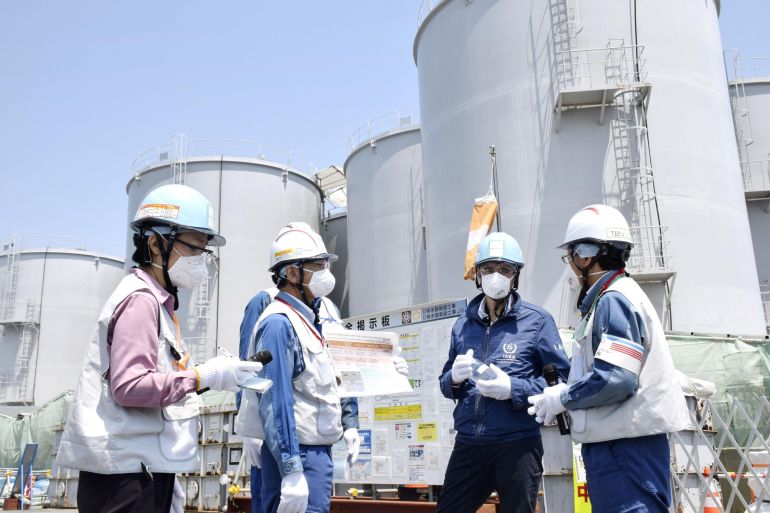Japan signals return to nuclear power to stabilise energy supply
Japan’s government previously insisted it would not consider building new nuclear power plants or replacing aged reactors.

Japanese Prime Minister Fumio Kishida has instructed his government to consider developing safer, smaller nuclear reactors, signalling a renewed emphasis on nuclear energy years after many of the country’s plants were shut down.
The comments on Wednesday from Kishida – who also said the government would look at extending the lifespan of existing reactors – highlight how the Ukraine crisis and soaring energy costs have forced a change in public opinion and a policy rethink towards nuclear power.
Keep reading
list of 4 itemsUS backs Japan’s Fukushima plans despite S Korea’s concerns
Protests grow in South Korea over Japan’s Fukushima water plan
‘Not a dumping ground’: Pacific condemns Fukushima water plan
The government had previously insisted it was not considering building new plants or replacing aged reactors, apparently to avoid stoking criticisms from people wary of nuclear fuel following the 2011 Fukushima nuclear plant disaster.
Kishida was speaking on Wednesday at a “green transformation” conference on bolstering the country’s efforts to curb emissions of greenhouse gases. Japan has pledged to reach carbon neutrality by 2050.
The prime minister said the panel presented proposals for the development and construction of “new innovative reactors designed with new safety mechanisms”, and he called on his government to speed up its examination of “every possible measure”.
“In order to overcome our imminent crisis of a power supply crunch, we must take our utmost steps to mobilise all possible policies in the coming years and prepare for any emergency,” Kishida said.
‘Stable energy supply’
Economy and Industry Minister Yasutoshi Nishimura told reporters the government will “consider all options regarding nuclear power”.
“It is extremely important to secure all options to redesign a stable energy supply for our country,” he said.
Anti-nuclear sentiment and safety concerns rose sharply in Japan after the Fukushima disaster, but the government has been pushing for a return to nuclear energy amid worries of power shortages following Russia’s invasion of Ukraine.
Most of Japan’s nuclear power plants were taken off line following the Fukushima accident for safety checks under tightened standards.
A magnitude 9 earthquake and tsunami destroyed key cooling functions at the Fukushima Daiichi nuclear plant in March 2011, causing its three reactors to melt and contaminating the region with significant radiation fallouts that still keep some areas uninhabitable.
Japanese utilities have since set more than 20 reactors for decommissioning largely because of the high cost of safety measures.
Of the 33 workable reactors, 25 have been screened for safety checks by the Nuclear Safety Authority. Seventeen have been approved so far, but only 10 have restarted after gaining consent from local communities, including three currently off line for regular safety inspections.
The government has already announced plans to speed up restarts and have up to nine reactors restarted by winter to cope with the energy crunch.
It aims to restart seven other reactors by next summer and further prolong the operational life of ageing reactors to beyond 60 years from the initial 40 years.